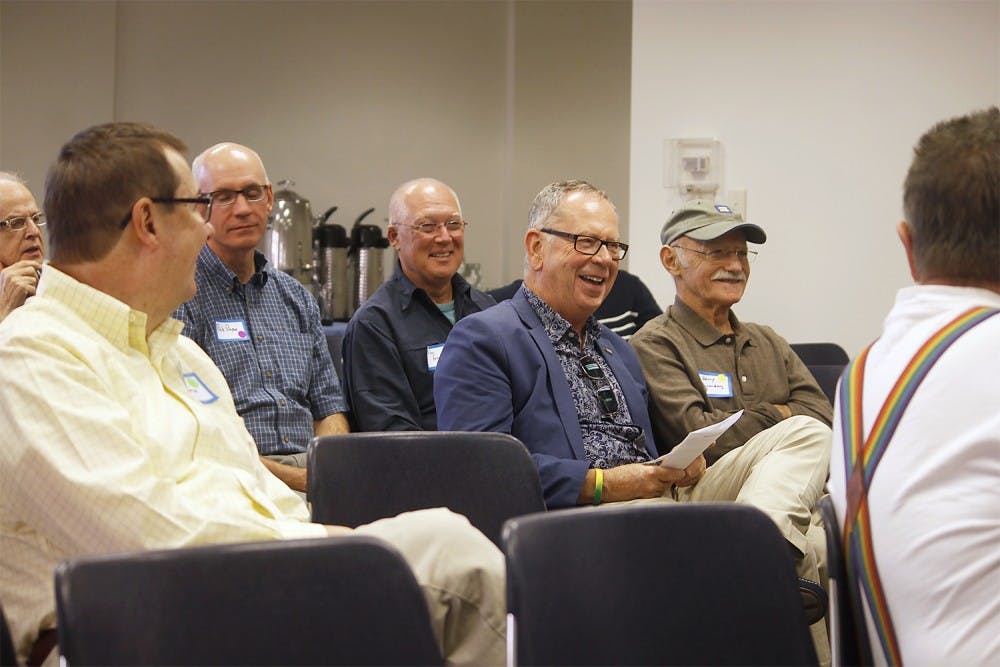According to Aluminate, the alumni newsletter for the UNC LGBTQ Center, the Campus Governing Council — the previous name for Student Congress — gave CGA only $535 out of the available $250,000 in 1974.
Grissom said he is pleased with the UNC’s activist climate.
“The fact that there are committees and the (LGBTQ) center, that says to me that a lot has been accomplished and that the realm of activism has moved to regular participation in the student life,” he said.
Senior Brian Beaman, co-president of the Sexuality and Gender Alliance, said in an email the group has gone through many name changes.
It expanded to include lesbians in the 1980s and bisexuals in the 1990s, but settled on SAGA in 2012 in order to include every person, regardless of sexual orientation or gender identification.
“The moral of the story is that our organization has evolved to try to be inclusive of everyone’s identity,” Beaman said.
Kleinschmidt said he is grateful for the work that CGA did then and the work that SAGA is doing now.
“This organization and its history transformed this campus and transformed this town into a place that is as welcoming as we could have hoped for in that time,” he said.
Kleinschmidt said CGA made Chapel Hill feel welcoming.
“(Chapel Hill) became my hometown because this organization existed,” he said.
Though SAGA has helped improve campus culture for LGBTQ people, the state legislation still has room for improvement.
It is still legal to fire someone in North Carolina because of their sexual orientation.
To get the day's news and headlines in your inbox each morning, sign up for our email newsletters.
Kleinschmidt said this could be different for tenured faculty because firing a tenured faculty member requires cause, but it applies to anyone hired under at-will employment.
“(At-will) means you can get fired because your boss doesn’t like the suit you are wearing that day,” he said. “You can get fired for whatever reason as long as it’s not a reason that is protected in the law.”
Kleinschmidt said it is important to look at this as a next step.
“Being a lesbian or being a gay man would fall under the same category as, ‘I don’t like the suit you are wearing,’” he said. “That is the kind of discrimination that we need to fight against as the next step in the LGBT movement.”
university@dailytarheel.com



